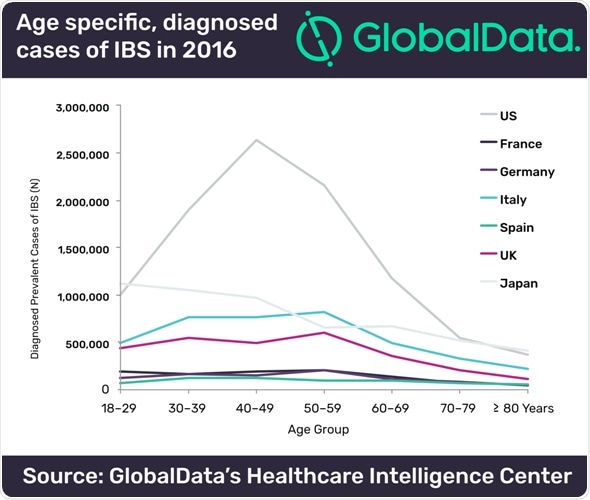Dec 21 2017
Irritable bowel syndrome (IBS) is a chronic relapsing gastrointestinal disorder, and is predominant in younger and middle-aged adults. IBS gradually declines with increasing age of the population, according to GlobalData, a leading data and analytics company.

In 2016, adults aged between 40–49 years made up the highest proportion of diagnosed prevalent cases of IBS, followed by adults aged between 30–39 years. Patients aged 80 years and older accounted for the fewest diagnosed prevalent cases of IBS (5.17%) in the seven major markets (7MM).
The US had a strong trend of increase in diagnosed prevalent cases of IBS up until the ages of 40–49 years, followed by strong downward trend in diagnosed prevalent cases. The five European countries (5EU) showed a slight increase in diagnosed IBS cases until ages 50–59 years, followed by slight decline.
While the exact cause of IBS is unknown, sensitivity of the gut and problems digesting food are possible factors, there are currently no medications or surgical procedures that can cure IBS. Treatment goals include managing symptoms, maintaining remission, and preventing relapse.
GlobalData epidemiologists forecast that the diagnosed prevalent cases of IBS in the 7MM, will increase from over 24 million cases in 2016, to over 25 million cases in 2026 at an annual growth rate (AGR) of 0.31% per year. In the 5EU the diagnosed prevalent cases of IBS will increase at a lower AGR of 0.20%.